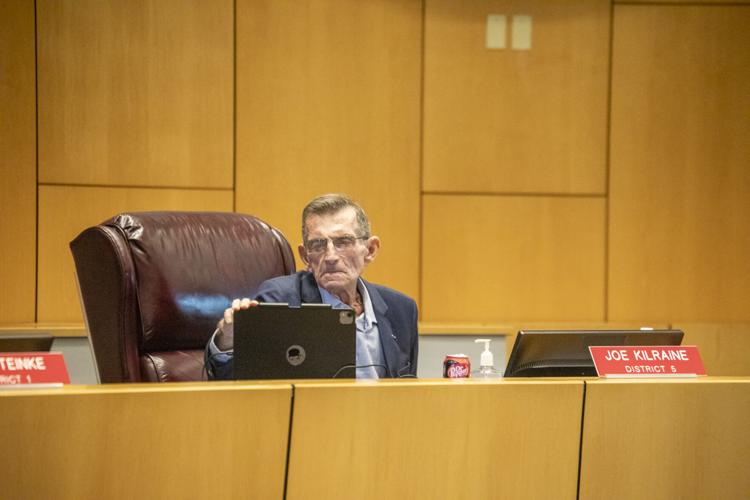Cape Coral City Council voted Sept. 25 to raise developer fees for the first time in 19 years, but five out of eight council members said the increase falls short of covering basic infrastructure costs and could leave residents facing higher taxes.
“Let’s face it, by doing it that way it’s going to be on the residents,” council member Joe Kilraine said.
Council unanimously agreed to end the city’s old impact fees to adopt a new mobility fee schedule that will raise the one-time fee imposed on all residential and commercial development by 12.5% per year, not to exceed 50% in four years.
But they could not reach the six out of eight votes needed to invoke “extraordinary circumstances” that would have given a future Council the option to raise those fees much higher than 12.5% at the end of four years to catch up with the cost of development.
State officials ruled that Cape Coral was justified in declaring extraordinary circumstances to cover development costs. Mayor John Gunter and council members Laurie Lehmann and Jennifer Nelson-Lastra opposed the move, citing concerns that fees on the city’s building industry could nearly double in year five and beyond.

Mayor John Gunter opposed invoking extraordinary circumstances, citing concerns over the impact on the city’s building industry.
“That’s not what the Lee Building Industry Association, Cape Coral Construction Industry Association and the Chamber of Commerce (of Cape Coral) recommended,” Gunter said. “So, I will stand by their recommendation and what my vote was in the past.”
Future Council may continue to raise fees up to 12.5% per year by a simple majority vote. However, because of the Council’s decision on Sept. 25, they can’t raise them any higher than that unless a future Council unanimously agrees to do so.

Council member Derrick Donnell voted in favor of higher fee increases to cover the growing cost of development in Cape Coral.
Council members Kilraine, Keith Long, Bill Steinke, Rachel Kaduk and Derrick Donnell voted for invoking extraordinary circumstances. They proposed a compromise that would have kept the rate hike at 12.5% per year for four years but would have allowed city leaders to either change the rate or allow it to nearly double after Jan. 1, 2030, to close a cost gap incurred by new development.
A city-commissioned study showed the Cape faces a $1.7 billion shortfall on transportation infrastructure over more than 20 years.
A Lee County report found that even if Cape Coral allowed mobility fees to nearly double between 2029 and 2030, the increase still would not close the funding gap. The report noted that as of 2018, the city needed to spend nearly $10,000 on transportation infrastructure for every new single-family home.
“We would still be 12 years behind in what was identified as the true cost of the infrastructure that we so badly want," Steinke said.
A more up-to-date Cape Coral report pegged the cost at about $14,000.
The new mobility fees will apply to all new residential and commercial construction: homes, hotels, schools, churches, offices, warehouses and more. Fees are typically based on the transportation infrastructure needed to support construction. For example, a gas station will have a higher mobility fee because it incurs more trips than a single-family home.

Cape Coral City Council voted Sept. 25 to increase developer fees by 12.5% annually over four years, replacing the city’s old impact fees.
Lastra worried about the fees associated with commercial construction, such as hotel rooms, suggesting that a spike at the end of four years might deter commercial developers.
Long disagreed, arguing that the Cape is devaluing itself by not charging for the true cost of development, sending the message that developers won’t come unless “we give away the barn.”










(0) comments
Welcome to the discussion.
Log In
Keep it Clean. Please avoid obscene, vulgar, lewd, racist or sexually-oriented language.
PLEASE TURN OFF YOUR CAPS LOCK.
Don't Threaten. Threats of harming another person will not be tolerated.
Be Truthful. Don't knowingly lie about anyone or anything.
Be Nice. No racism, sexism or any sort of -ism that is degrading to another person.
Be Proactive. Use the 'Report' link on each comment to let us know of abusive posts.
Share with Us. We'd love to hear eyewitness accounts, the history behind an article.